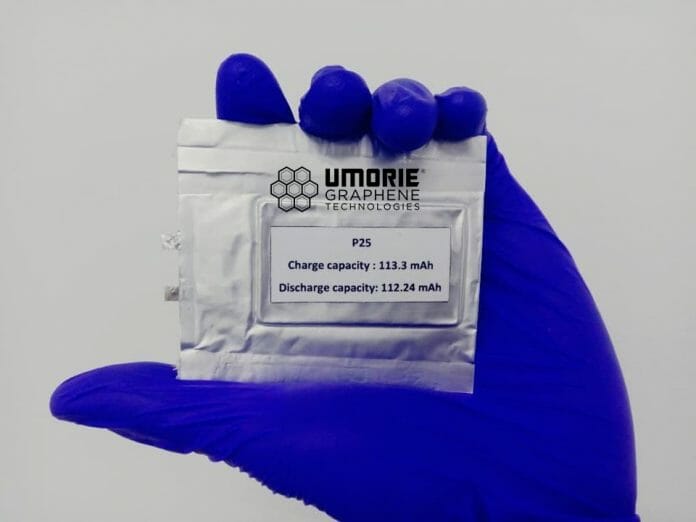The only setback for Electric Vehicles at this moment from completely replacing fuel-powered is the batteries and their capacity. Current technology allows these batteries to give approximately 500kilometeres per charge, even then it will be for the top range. However constant development in this space is showing some interesting outcome, including one from our own country.
NanoMalaysia Berhad which has been active in developing technology for EV and UMORIE Graphene Technologies Sdn Bhd have successfully developed a working prototype of graphene-based pouch cell battery that can deliver longer performance. This full-cell lithiumion battery with graphene material will also have more efficient storage platform for clean and renewable energy source.
The project initiated under NMB’s Graphene Action Plan 2020 with an investment of approximately RM340,000 is able to delvier 200Wh/kg and has much higher energy density than commercially available batteries. This translates into it being longer lasting; being able to recharge significantly faster; and a much longer life cycle. Consequently, it will also address the issue of heavy conventional EV batteries impeding driving range as the graphene battery has a higher power output, its size can be decreased.
Under the project, the battery’s Intellectual Property is jointly developed by NMB, UMORIE and Universiti Kebangsaan Malaysia. Umorie is the dedicated research and development company of ASP PRO Sdn Bhd, which has laboratory facilities to support the pilot production of graphene battery. NanoMalaysia CEO Dr Rezal Khairi Ahmad said, “In 2020, the global electric vehicle market size was USD246.7 billion and it is forecasted to grow up to USD1,318.22 billion in 2028. This battery will enable Malaysia to capture these opportunities from an EV components perspective. Not only will we be able to create a local supply chain to catalyse a local EV industry, but we will also be able to establish Malaysia as a high-technology energy storage system exporter and penetrate foreign EV markets such as Indonesia and Thailand.
The nano battery market is forecasted to reach USD28.1 billion globally by 2030 at 18.6 per cent compound annual growth rate. Not only that but the battery be used in EVs, but it can also be scaled down for electronics such as mobile phones and laptops – enabling us to capture an even wider market.









